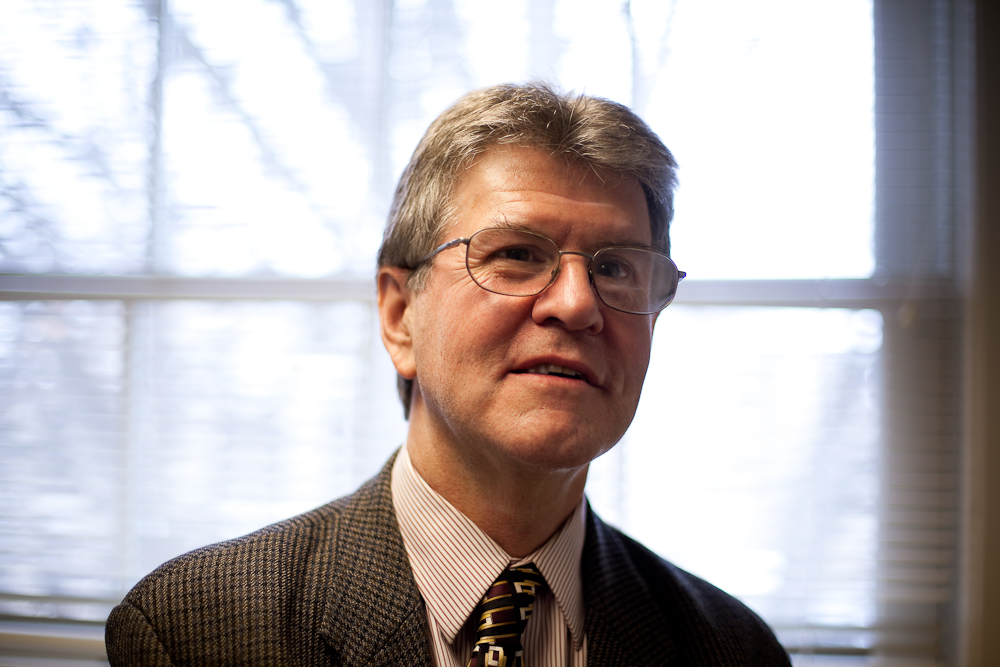Baylor Religion Scholar Will Travel to Rome Conference to Lecture About Challenges of the Catholic Church

Baylor Religion Scholar Philip Jenkins
Follow us on Twitter:@BaylorUMediaCom
Contact: Terry Goodrich,(254) 710-3321
WACO, Texas (April 4, 2013) -- Baylor University religion scholar Philip Jenkins, Ph.D., will be among lecturers at the German Bishops Conference in Rome, which will be focused upon new religious movements that are challenges for the Roman Catholic Church.
The international conference will be April 9-11.
Jenkins, Distinguished Professor of History at Baylor, is co-director for the Program on Historical Studies of Religion in Baylor's Institute for Studies of Religion.
In his address at the conference's conclusion, Jenkins will focus on the religious and sociological perspective of why the "New Religious Movements" -- Evangelical, Pentecostal and Charismatic -- are so attractive and how local Catholic churches should react.
Part of the appeal of new churches in many parts of the globe is that they have fulfilled emerging social needs in gender and race at times of such sweeping changes as mass urbanization and mass migration, Jenkins says.
But in prepared remarks, Jenkins wrote that "I do not view the challenge of emerging churches as too grave a threat for the Catholic Church, which ideally might be able to learn much from its present-day competitors."
He notes that no theological reason exists that Catholics, Anglicans and others should not offer services and functions that make Pentecostals appealing in terms of "healing and spiritual warfare. They also can offer services that appeal to similar emotional and aesthetic tastes."
For example, the Catholic church in the Philippines -- which has seen an explosive growth in evangelical and Pentecostal churches in recent years -- has not suffered mass defections from Catholicism, "nor are any on the horizon, because Catholic authorities have devised highly effective ways to channel and build on popular religious enthusiasm," Jenkins notes. "It does this through a series of lay organizations and societies that draw wholly on charismatic worship styles, but which remain within the church's very big tent."
ABOUT BAYLOR UNIVERSITY
Baylor University is a private Christian university and a nationally ranked research institution, characterized as having "high research activity" by the Carnegie Foundation for the Advancement of Teaching. The university provides a vibrant campus community for approximately 15,000 students by blending interdisciplinary research with an international reputation for educational excellence and a faculty commitment to teaching and scholarship. Chartered in 1845 by the Republic of Texas through the efforts of Baptist pioneers, Baylor is the oldest continually operating university in Texas. Located in Waco, Baylor welcomes students from all 50 states and more than 80 countries to study a broad range of degrees among its 11 nationally recognized academic divisions. Baylor sponsors 19 varsity athletic teams and is a founding member of the Big 12 Conference.
ABOUT THE INSTITUTE FOR THE STUDIES OF RELIGION
Launched in August 2004, the Baylor Institute for Studies of Religion (ISR) exists to initiate, support and conduct research on religion, involving scholars and projects spanning the intellectual spectrum: history, psychology, sociology, economics, anthropology, political science, epidemiology, theology and religious studies. The institute's mandate extends to all religions, everywhere, and throughout history, and embraces the study of religious effects on prosocial behavior, family life, population health, economic development and social conflict. While always striving for appropriate scientific objectivity, ISR scholars treat religion with the respect that sacred matters require and deserve.